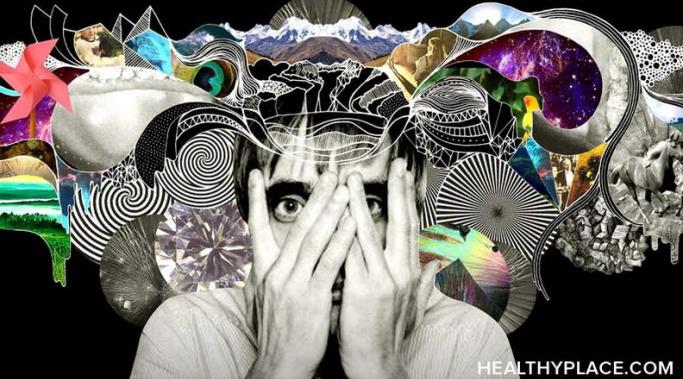I’m a science gal. I practically drown in the stuff. True, I have a natural curiosity for pretty much everything, but also, I try to keep abreast of what’s happening in the research areas of mood disorders and psychopharmacology. Yes, it’s a lot of work.
I certainly don’t catch everything, but one thing I did catch a while back was this, “Study Finds No Difference In Nonsuicide Mortality Between Two Anti-Psychotic Drugs.”
Basically, neither Zyprexa nor Geodon will kill you more. But is that actually what the study showed?
Bipolar Treatment – Breaking Bipolar
As I mentioned last time, many doctors feel that antidepressants actually make bipolar disorder worse. Some specialists, in fact, will routinely take people with bipolar disorder off of antidepressants when the bipolar is doing well. Like I said, it’s a matter of perspective.
And I get asked all the time about getting off of antidepressants and other medication. So, exactly how should you get off an antidepressant and what should you worry about when doing so?
While many people with bipolar disorder have and continue to be treated with antidepressants along with many other medications, there is a controversy in the medical community as to whether this is an appropriate approach. In bipolar disorder there is some risk of antidepressants inducing mania or perhaps worsening rapid-cycling.
But is this true? What evidence is there that antidepressants work in bipolar disorder? What evidence is there that they will make bipolar disorder worse? What do you do if you can’t take an antidepressant?
I recently received a comment regarding bipolar medication, its development and the mental health care system in general. The commenter accuses the mental health community of being corrupt and asks, “Why are we forced to take such bad bipolar medicines?”
Alternative treatments for bipolar disorder, and any mental illness, abound. People will advise you to do anything from cut gluten out of your diet, to take an herbal cocktail to cleans your aura. I, myself, have seen a few alternative health care practitioners and tried a few of their treatments. And while I didn't personally find any benefit, and I don't find most of these treatments credible, if you are going to try a bipolar treatment outside of medicine, there is one major rule to follow.
Congratulations; if you’re reading this you’ve survived the holidays, or most of them anyway. You’re past the late-night wrapping sessions, the overindulgence in eggnog and the stuffing that you never like but every year are forced into eating anyway. Huzah.
But if you’re a bipolar like me, you’ve found that all that forced merriment has left you feeling hollow, tired and depressed, so it’s time to take action to get back to your pre-holiday self.
I was inspired today by Seth Godin’s blog article Lady Gaga and Me. In it, he makes the point that writers needn’t worry about all the people who don’t like them because really, they should only worry about all those who do. I understand this as I’m a writer, and there are people who don’t like my writing; which is OK, because there are many who do.
The same goes for bipolar treatments. Some people are just never going to agree with your chosen bipolar treatment plan no matter what you do.
Epileptics often get what is known as an aura before they have a seizure. An aura is a sensation like hearing voices or seeing colored lights or experiencing numbness. An aura might be present a few seconds or a few minutes before the seizure depending on the person. It’s an early warning sign of a brain misfire. Similarly, I experience signs, an aura if you will, of upcoming hypomanias.
I have been through very long, dark nights of the psyche. I have been in pain I didn’t think I could survive. I’ve been in pain I almost didn’t survive. I have done things I never wanted to do. I have done things I never thought I would do. I have been to places most people wouldn’t even come up with in their nightmares.
And when I’m not there, I’m grateful. No matter how much I might think things suck, I’m not sitting in that particular pile of blood and muck. No matter how I feel today I can honestly say it can get worse. Every time I think I’ve hit bottom I’ve found there is actually more bottom beyond that. It is unfortunate but true, there is no maximum to pain.
And any time I even think about changing meds I’m worried I will go there again.
I have been through more bipolar treatments than I care to recall; probably everything you’ve heard of plus a bunch of bipolar treatments you haven’t. And yes, obviously, I have failed the vast majority of these bipolar treatments. And while not getting better is certainly nasty enough, it always feels like it’s my fault that the treatment didn’t work.
